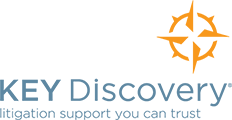In the rapidly evolving world of technology and data, the need for efficient management and retrieval of electronic information has become paramount. As organizations increasingly depend on digital data, legal processes involving electronic discovery (eDiscovery) have become more complex and critical. This is where eDiscovery consultants come into play. In this blog post, we will delve into the role of an eDiscovery consultant and what exactly they do to help organizations navigate the intricate landscape of electronic discovery.
Understanding eDiscovery
Before we delve into the specifics of an eDiscovery consultant’s role, it’s important to comprehend what eDiscovery is. Electronic discovery, or eDiscovery, refers to the process of discovering, collecting, analyzing, and producing electronically stored information (ESI) during the litigation or investigation process. ESI can encompass emails, documents, databases, voicemails, and various other digital files.
The Role of an eDiscovery Consultant
An eDiscovery consultant is a professional who possesses a deep understanding of legal and technological domains. Their primary objective is to assist organizations in managing, organizing, and presenting electronic data for legal proceedings in a defensible and efficient manner. Here’s a breakdown of what an eDiscovery consultant does:
1. Assessment and Strategy Development:
eDiscovery consultants begin by conducting a comprehensive assessment of an organization’s existing data management processes and technology infrastructure. Based on this evaluation, they develop customized strategies to ensure seamless data collection, preservation, and retrieval in compliance with legal and regulatory requirements.
2. Data Collection and Preservation:
One of the critical responsibilities of an eDiscovery consultant is overseeing the collection and preservation of relevant electronic data. This involves identifying and preserving ESI across various sources such as servers, computers, mobile devices, cloud platforms, paper documents (yes those do get scanned) and more. They ensure that the collection process is forensically sound and legally defensible.
3. Data Processing and Analysis:
Once the data is collected, eDiscovery consultants assist in processing and analyzing it. They use specialized software and tools to filter, cull, and organize the data, making it more manageable for further review. This process helps in identifying relevant information and removing irrelevant or duplicate data, reducing the volume of data that needs to be reviewed.
4. Review and Production:
eDiscovery consultants coordinate and facilitate the review of the processed data. This involves working with legal teams, categorizing information based on relevance, privilege, and other criteria, and preparing it for production during legal proceedings.
5. Compliance and Legal Support:
Throughout the eDiscovery process, consultants ensure compliance with relevant laws, regulations, and court rules governing the handling of electronic data. They provide expert advice and testify in legal proceedings if required, explaining the eDiscovery process and validating the integrity and defensibility of the collected electronic evidence.
6. Training and Education:
Lastly, eDiscovery consultants often provide training and education to legal teams and organizations. They impart knowledge about eDiscovery best practices, relevant tools, and legal implications to ensure that the organization is better equipped to handle eDiscovery processes internally.
Final Thoughts on eDiscovery Consulting Profession
An eDiscovery consultant plays a crucial role in the modern legal landscape, bridging the gap between legal and technological domains. Their expertise in navigating complex electronic data, ensuring compliance with legal requirements, and optimizing the eDiscovery process makes them invaluable assets for organizations dealing with litigation or investigations involving electronic information. Collaborating with eDiscovery consulting firms is paramount for law firms due to the intricate and evolving nature of electronic data in today’s legal landscape. The exponential growth of digital information has made data management and retrieval complex, particularly during legal proceedings. eDiscovery consultants possess specialized knowledge and expertise in both legal and technological domains, enabling them to effectively navigate this complexity. They assist law firms in developing tailored strategies for efficient data collection, preservation, analysis, and presentation, all while ensuring adherence to legal and regulatory requirements. This partnership not only enhances the law firm’s capabilities but also fosters defensible and organized approaches to electronic discovery, ultimately bolstering the firm’s credibility and success in legal matters.
If you’re a law firm then you already know how difficult and time consuming it is to go through multiple platforms of content. Succeed in your practice by working with en eDiscovery consultant who knows how to handle digital information while you focus on doing what you’re best at, practicing law.
